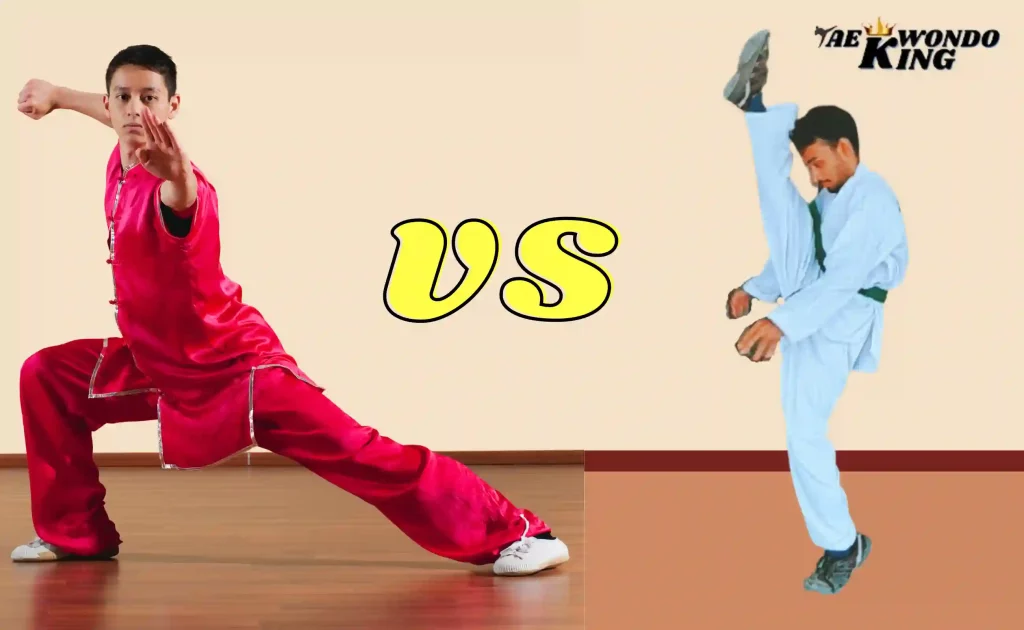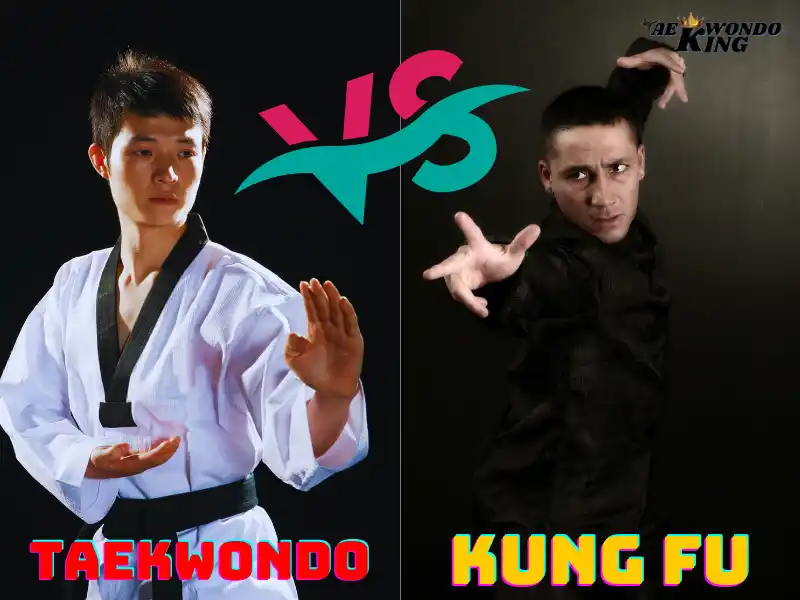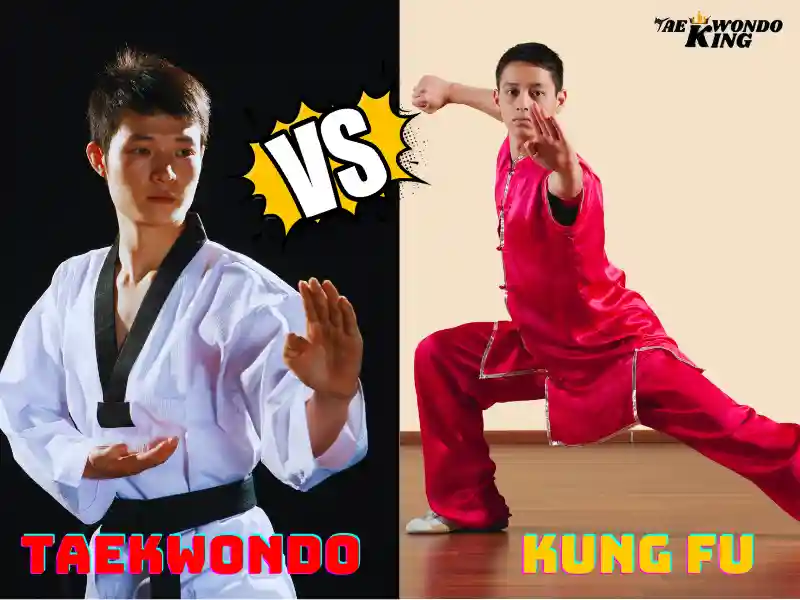
Martial arts are a tapestry woven with threads of tradition, technique, and philosophy, spanning cultures and continents. Among the many disciplines that have captivated enthusiasts, Brazilian Jiu-Jitsu (BJJ) and Kung Fu stand out as two distinct pillars of combat mastery. In the quest to decipher the ultimate victor in a martial arts duel, the question arises: Does Brazilian Jiu-Jitsu truly reign supreme over Kung Fu? This article embarks on a journey to dissect the intricacies of BJJ and Kung Fu, delving into their strengths, strategies, and applications to unveil the enigma of which martial art emerges victorious in this intriguing comparison. Today we are talking about how BJJ Beat Kung Fu.
Kung fu is an ancient martial art that was created by ancient Chinese warriors. It is very difficult to master. To get a black belt in kung fu, one must undergo about five years of training. Kung fu has many styles, such as karate, aikido, Wushu, tai chi, jiu-jitsu, and so on. If you want to learn kung fu, you first need to become familiar with the basic movements.
There are many forms of kung fu. The form that you choose depends on the style that you want to learn. After that, you need to learn self-defense moves. Then, you can start to apply the techniques in different scenarios. This will allow you to defend yourself in real-life situations.
Kung fu is a martial form that is based on the moves of animals such as birds, snakes, and insects. There are many forms of kung fu, but none is more powerful than BJJ. If you have been training in this art form for some time, you should be able to defend yourself from someone else who is coming at you.
Background History of BJJ and Kung Fu
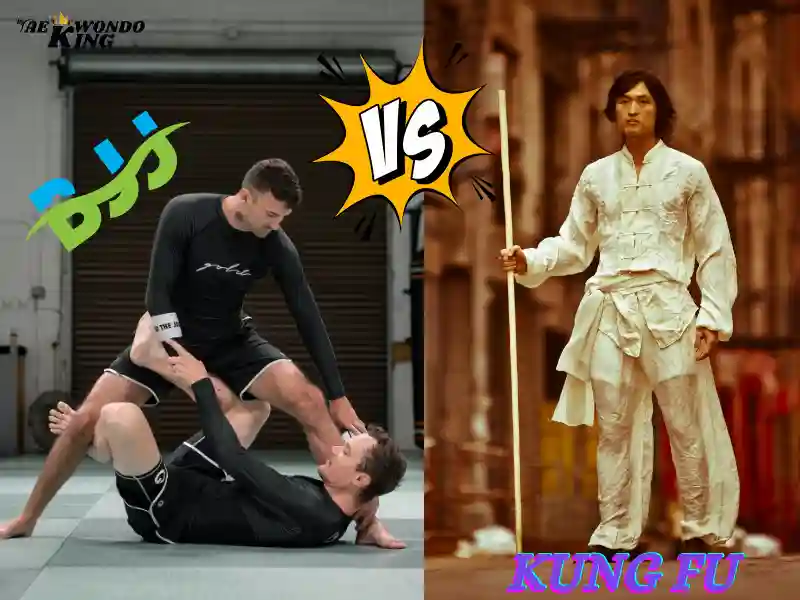
Brazilian Jiu-Jitsu (BJJ):
Originating from the Gracie family in Brazil, BJJ is a ground-based martial art and combat sport. Evolved from Judo and Japanese Jiu-Jitsu, BJJ revolves around leveraging technique and leverage to control and submit opponents, focusing on joint locks and chokeholds.
Brazilian Jiu-Jitsu (BJJ) emerges from a rich tapestry of martial arts history. Developed in the early 20th century, BJJ draws its roots from Japanese Jujutsu and Judo. The Gracie family in Brazil refined and evolved these techniques, resulting in the birth of BJJ as we know it today. This martial art focuses on leverage and technique, allowing smaller practitioners to overcome larger opponents. BJJ’s rapid global popularity can be attributed to its effectiveness in mixed martial arts competitions and self-defense scenarios. With a foundation steeped in history and a commitment to innovation, BJJ remains a cornerstone of martial arts excellence.
Kung Fu:
An ancient Chinese martial art, Kung Fu encompasses an array of styles, each characterized by its unique techniques, forms, and philosophies. It emphasizes strikes, kicks, blocks, throws, joint locks, and even weapons training, showcasing its versatility and adaptability.
Kung Fu, a captivating martial art, boasts a captivating background rooted in Chinese history and philosophy. Originating over centuries, its origins intertwine with ancient combat techniques and philosophies like Taoism and Buddhism. Kung Fu emphasizes both physical prowess and mental discipline, striving for harmony between body and mind. Techniques are as diverse as the myriad styles within Kung Fu, from graceful and flowing to explosive and powerful. As a testament to its enduring appeal, Kung Fu continues to influence modern martial arts and popular culture. Its deep-rooted history is a testament to its enduring legacy of strength and wisdom.
Analyzing the Attributes: BJJ vs. Kung Fu
Techniques and Range:
- BJJ: Renowned for its ground grappling techniques, BJJ thrives in close-quarters combat. It excels in controlling and submitting opponents through joint manipulation and chokes, often transitioning from one position to another with strategic fluidity. It is considered an essential ground combat technique.
- Kung Fu: Kung Fu encompasses a broader spectrum, with styles emphasizing both close and long-range combat. It employs a diverse arsenal of strikes, kicks, throws, and sweeps, as well as techniques for blocking and redirecting opponents’ attacks.
Strategy and Tactics:
- BJJ: BJJ’s strategy revolves around achieving advantage positions and leveraging an opponent’s force against them. It places significant emphasis on positional dominance and maintaining control to set up submission opportunities.
- Kung Fu: Kung Fu tactics encompass a wide range of strategies, including evasive footwork, quick strikes, and deflecting an opponent’s force. It emphasizes adaptability and the ability to adjust techniques on the fly based on the situation.
Real-World Application:
- BJJ: BJJ’s ground control and grappling submission time techniques are potent in one-on-one confrontations, allowing practitioners to neutralize and incapacitate opponents.
- Kung Fu: Kung Fu’s versatility equips practitioners to handle various situations, including striking, grappling, and even armed combat. Its adaptability makes it suitable for both one-on-one confrontations and scenarios involving multiple attackers.
Physical Fitness and Conditioning:
- BJJ: BJJ provides intense cardiovascular exercise through sparring and grappling. It enhances muscular endurance, improves health, self-defense, discipline, focus, flexibility, core strength, and overall body conditioning.
- Kung Fu: Kung Fu training combines cardiovascular workouts with mental health, physical strength training, flexibility exercises, and dynamic movements, promoting agility, balance, and overall fitness.
Complementary Aspects: Kung Fu vs. BJJ
Rather than engaging in an either-or debate, Does BJJ Beat Kung Fu? It’s essential to recognize that both BJJ and Kung Fu offer valuable attributes that can synergize effectively.
Ground Control and Striking Integration:
- BJJ: BJJ practitioners can benefit from incorporating Kung Fu’s striking techniques into their arsenal, enabling them to strike effectively while maintaining awareness of their ground game.
- Kung Fu: Kung Fu practitioners can enhance their ground control and submission defense by integrating BJJ techniques, bolstering their ability to escape unfavorable positions and neutralize grappling-focused opponents.
Adaptability and Versatility:
- BJJ: Integrating Kung Fu’s diverse range of techniques can enhance a BJJ practitioner’s adaptability, enabling them to engage in various ranges and respond effectively to different attack scenarios.
- Kung Fu: Learning BJJ can enhance a Kung Fu practitioner’s ground skills, providing them with the tools to navigate and control situations that go beyond their traditional striking focus. It improved appropriate grappling or wrestling training.
Mindset and Decision-Making:
- BJJ: BJJ’s strategic approach can enrich a Kung Fu practitioner’s decision-making process by promoting patience and calculated responses during combat. BJJ improves mental health by incorporating body movements.
- Kung Fu: Kung Fu’s emphasis on adaptability and situational awareness can imbue BJJ practitioners with a more dynamic mindset, and helps develop mental toughness, enhancing their ability to adjust techniques based on changing circumstances.
Who is Better to Learn? BJJ Beat Kung Fu?
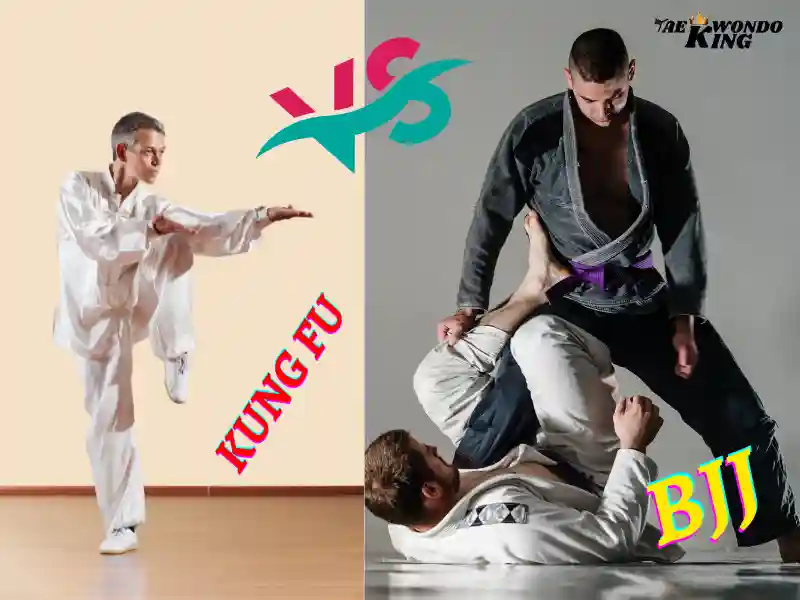
Whether Brazilian Jiu-Jitsu beats Kung Fu transcends a simple binary answer. Instead, it calls for a deeper appreciation of the unique strengths and applications each art offers. BJJ’s mastery of ground grappling and submissions makes it a formidable force in one-on-one scenarios, while Kung Fu’s versatility and comprehensive skill set make it an adaptable choice for a range of confrontational situations.
Does BJJ Beat Kung Fu? The true essence of martial arts lies not in pitting one against the other, but in recognizing their potential synergy. By combining the strengths of BJJ and Kung Fu, martial artists can become well-rounded combatants, capable of navigating a diverse array of challenges. The pursuit of excellence is not about choosing a victor; it’s about embracing the holistic teachings of both disciplines to create a martial artist whose skills transcend limitations.
What advantages does BJJ have over Kung Fu?
Brazilian Jiu-Jitsu (BJJ) has several advantages over Kung Fu. Some advantages include:
1. Ground fighting expertise: BJJ specializes in ground fighting and submission holds, giving practitioners an advantage in close-quarters combat and self-defense situations where the fight goes to the ground.
2. Focus on leverage and technique: BJJ emphasizes technique and leverage over strength, allowing smaller individuals to effectively defend themselves against larger opponents.
3. Practicality and effectiveness: BJJ techniques have been tested and proven in real-life combat situations, including mixed martial arts competitions. It is known for its practicality and effectiveness in real-world self-defense scenarios.
4. Training intensity and live sparring: BJJ training typically involves intense live sparring sessions, allowing practitioners to apply techniques against resisting opponents. This helps develop effective skills and adaptability in a dynamic fighting environment.
5. Competitive opportunities: BJJ offers numerous competitive opportunities through tournaments and competitions, allowing practitioners to test their skills against opponents of similar skill levels.
It’s important to note that both BJJ and Kung Fu have their own unique strengths and advantages, and the effectiveness of any martial art also depends on the individual practitioner’s dedication, training, and experience.
How can BJJ practitioners achieve success against Kung Fu practitioners?
Achieving success against Kung Fu practitioners in Brazilian Jiu-Jitsu (BJJ) can be accomplished by utilizing the strengths and techniques of BJJ. Here are a few strategies that BJJ practitioners can use:
1. Ground Fighting: BJJ is well-known for its ground fighting techniques and submissions. Use your knowledge of sweeps, submissions, and positional control to take the fight to the ground where BJJ excels.
2. Clinching and Takedowns: BJJ practitioners should focus on their takedown skills to bring the fight to the ground. Use techniques like single-leg takedowns, double-leg takedowns, or judo throws to gain control.
3. Control and Submissions: Once on the ground, focus on controlling your opponent’s movements and position. Use joint locks and chokes to force your opponent into submission.
4. Train Against Different Styles: To prepare for a Kung Fu practitioner, it is important to train against various martial arts styles. Familiarize yourself with the techniques and movements of Kung Fu to understand their strengths and weaknesses.
5. Adaptability and Strategy: BJJ practitioners should be adaptable and able to adjust their strategies based on their opponents’ strengths and weaknesses. Assess your opponent’s techniques and adjust your game plan accordingly.
Remember, achieving success against any martial arts practitioner requires consistent training, practice, and a deep understanding of your style and techniques.
In Conclusions
In the end, the question isn’t whether BJJ beats Kung Fu; it’s about how these two disciplines can coexist harmoniously to shape a new generation of martial artists who embody the best of both worlds. By embracing the traditions, techniques, and philosophies of BJJ and Kung Fu, practitioners can embark on a transformative journey toward martial mastery, expanding their horizons and unlocking a world of combat potential.
FAQs
Can BJJ techniques be effective against Kung Fu techniques?
The effectiveness of Brazilian Jiu-Jitsu (BJJ) techniques against Kung Fu techniques would depend on various factors such as the skill level and training of the practitioners, the specific techniques being used, and the context of the situation. Both BJJ and Kung Fu have their unique strengths and weaknesses, and it is difficult to make a general statement about their effectiveness against each other. Ultimately, the outcome would rely on the individual’s ability to execute the techniques effectively and adapt to the specific circumstances.
Can someone with BJJ training defeat a Kung Fu practitioner?
The outcome of a fight between a Brazilian Jiu-Jitsu (BJJ) practitioner and a Kung Fu practitioner would depend on various factors such as their skill level, experience, physical attributes, and the strategies they use. BJJ is a highly effective martial art known for its grappling and ground fighting techniques, while Kung Fu includes a wide range of traditional Chinese martial arts styles. BJJ focuses on submissions and ground control, while Kung Fu incorporates striking, kicks, and weapon techniques. Ultimately, the result would be determined by the specific individuals involved and their proficiency in their respective martial arts.
Is BJJ considered more practical and effective than Kung Fu?
The effectiveness of Brazilian Jiu-Jitsu (BJJ) compared to Kung Fu can vary depending on various factors such as the skill level of the practitioner, the specific styles within each martial art, and the context in which they are applied. BJJ is known for its ground fighting and submission techniques, which can be highly effective in self-defense situations and mixed martial arts competitions. Kung Fu includes a wide range of styles, some of which focus more on striking techniques, while others incorporate joint locks and throws. Ultimately, the practicality and effectiveness of each martial art depend on the individual’s training, experience, and application.
Can someone with a background in Kung Fu achieve success in BJJ?
Yes, someone with a background in Kung Fu may be able to achieve success in Brazilian Jiu-Jitsu (BJJ). Although the two martial arts have different techniques and philosophies, previous training in Kung Fu can establish a base of discipline, body awareness, and principles of martial arts that can be advantageous in learning BJJ. However, success in BJJ also relies on individual commitment, training, and adaptation to the particular techniques and strategies of BJJ.

Founder, Owner, and CEO of TaekwondoKing.
He is one of the top 100 martial artists in the World and among the top 20 referees in Bangladesh.
Ehatasamul Alom is an esteemed Kukkiwon Certified Taekwondo 3rd Dan Black Belt with over 15 years of experience in this dynamic martial art. Born in Rajshahi, Bangladesh, Ehatasamul’s journey with Taekwondo began at the tender age of seven. His passion led him to compete at national and international levels, where he has bagged numerous awards and honors. He is also a member of the Taekwondo National Referee Panel.
With a Bachelor’s degree in Sports Science from the prestigious Rajshahi University, Ehatasamul has a deep understanding of the technical and scientific aspects of martial arts and some other martial arts.
In 2022, Ehatasamul created the “TaekwondoKing.com” to share his knowledge, Free Resources, Values, and Real experiences. His articles focus on Taekwondo training techniques, competition strategies, Sport Products Reviews, and the art’s rich history and philosophy. He also writes about the importance of mental fortitude and discipline, key aspects of his teaching philosophy. He has already launched many sports, Taekwondo, and health-related Free online tools. His goal is to inspire both beginners and seasoned practitioners worldwide through insightful and engaging content.
If you need any help, contact Ehatasamul Alom at any time.

